Sold at an Oxfordshire auction some years ago was a small but interesting lot comprised of an ACU-approved ‘pudding basin’ helmet and a number of trophies, medals and other motorcycling memorabilia. It was the last link to one of the most interesting women in British motorcycle sport through the nineteen-fifties and ‘sixties – and obviously an interesting woman in many other respects as well – Olga Kevelos.
Olga Kevelos, who died aged 85 in October 2009, was, without doubt, the country’s leading lady motorcyclist of her day. Olga was a road racer, a trials rider and the only woman to win two gold medals in the International Six Days Trial enduro event. In an age where there were many ace all-round motorcyclists competing with success in both road racing and off-road competition, she was more often than not the only female rider in any event that she contested. But she always had the respect of her masculine peers – not just because of her femininity but because of her riding skills as well.
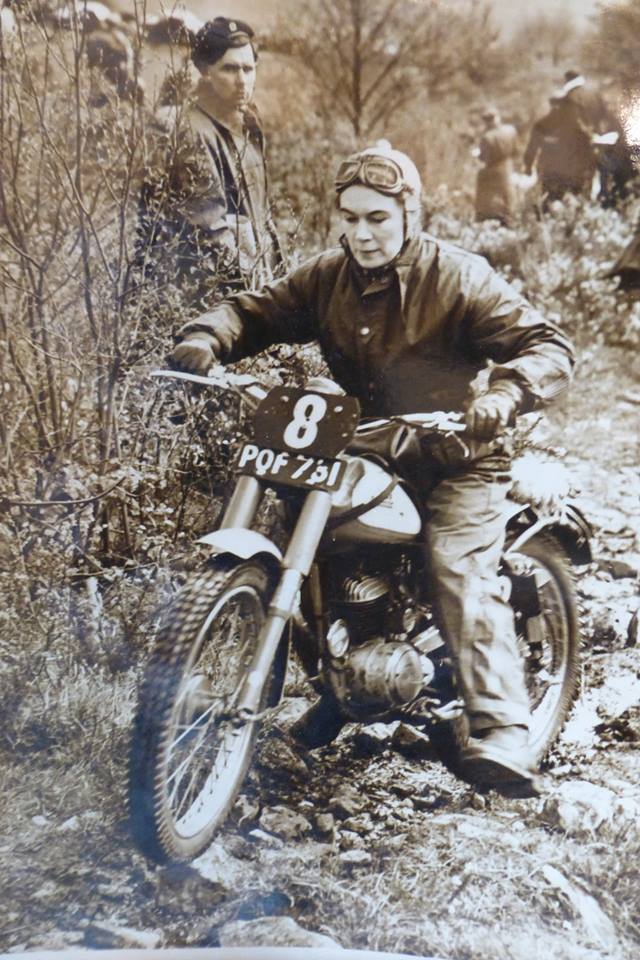
Olga eventually gave up motorcycle competition in 1970 and for 26 years helped her younger brother Ray to run the White Horse pub in the small South Northamptonshire village of King’s Sutton. After Ray’s death, the auction lot was made up of the mementoes that he had kept to remind him of his sister.
Early Life
Olga Kevelos was born at Edgbaston, Birmingham, on November 6 1923. The daughter of a wealthy Greek financier and his English wife, she was a middle-class wartime teenager. Olga Kevelos showed that she was rather more adventurous than most of her fellow pupils at the exclusive King Edward VI High School for Girls in Edgbaston, Birmingham.
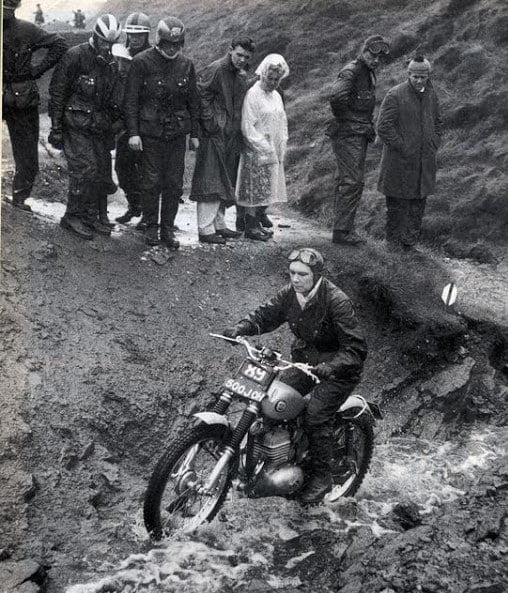
From school she went on to study metallurgy and, with the country at war, worked for a time in the laboratories of William Mills, manufacturer of the Mills bomb. Always passionate about astronomy, she was then lured to London by the offer of a job at the Royal Observatory at Greenwich.
Early Career
In 1943, when she was 19, she saw an advertisement in The Times, placed by the Department for War Transport, inviting women to train for vital war work on the canals. Quitting her job at the Royal Observatory, Olga spent the next two years as one of a number of all-female volunteer crews who manned barges. These carried vital war materials along the Grand Union Canal between London and the Midlands.
Living conditions were rough, and the girls were often cold and wet as well as hungry. The weather could be appalling, and their craft could often be icebound for days on end. For the daughter of a well-off middle-class family who would normally never have been allowed to go out to work, Olga’s wartime work was a unique and highly unusual experience of heavy and prolonged manual labour.
“It was hard work with no respite at all” she later remembered. “We worked an 18- to 20-hour day, and nobody ever stopped. We subsisted mainly on cocoa with condensed milk, bread and peanut butter. I was always hungry.”
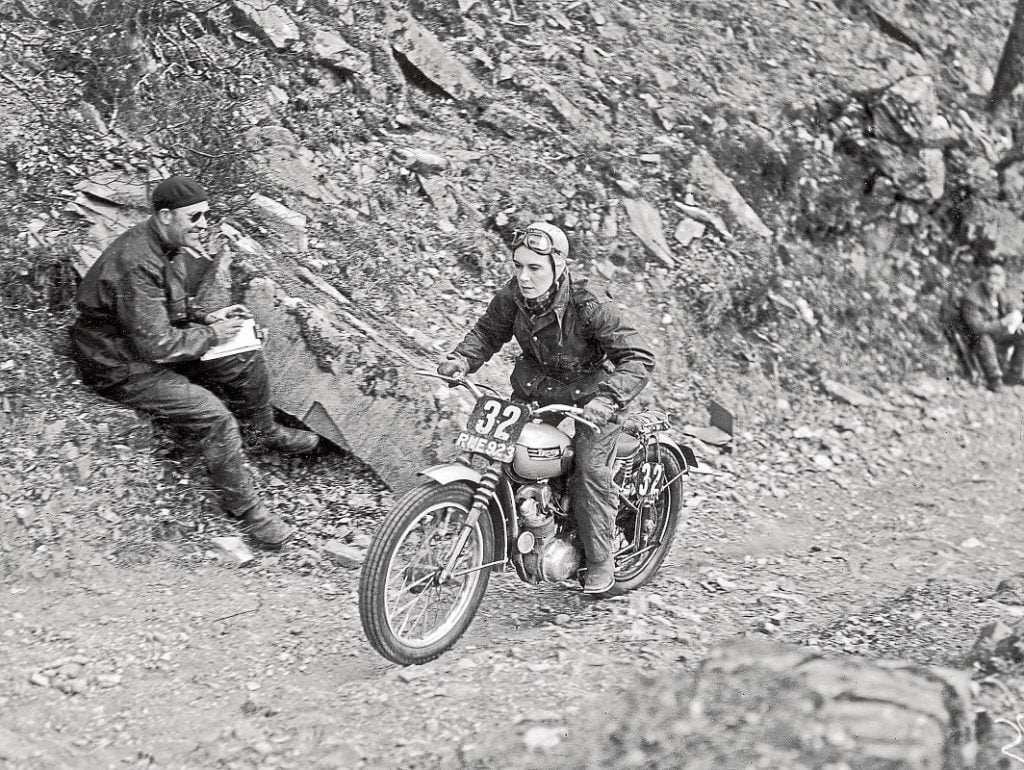
Working on the Canals
In all, some 45 women took charge of the canal boats, which were worked in pairs, with each pair crewed by three women. After initial training, the volunteers would take the helm of the 70-foot narrow-boats. These were used for transporting Spitfire and other war machine parts from the London docks to Birmingham. On the return trip they would haul coal from Warwickshire to London. And after each three-week round trip, they would have the option of a week’s unpaid leave.
As Olga Kevelos discovered, the work was arduous and could be unpleasant and even dangerous. Their cargo was often disguised, with weapons and even gold bars sometimes being concealed amongst more innocent freight.
After the war, she was awarded a government grant to study French after her wartime exertions and read Medieval History for a year at the Cité University in Paris. Fit and strong after her work on the canals, she recalled bicycling all over Paris and travelling extensively in other parts of Europe.
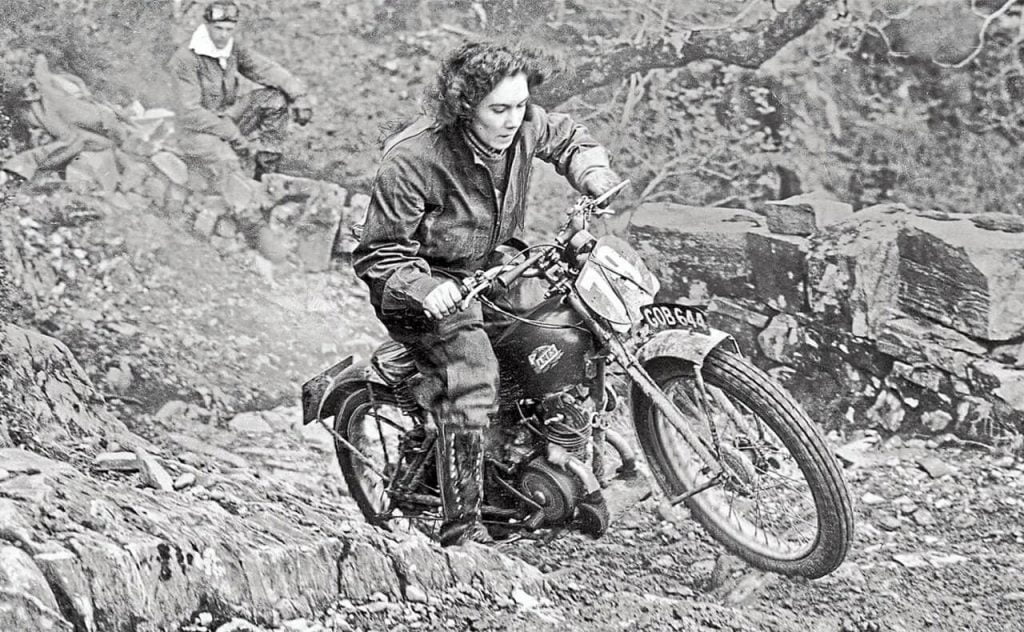
Returning to Birmingham, Olga started her own travel agency, harnessing her new-found knowledge of Europe. She also helped her father and other members of the family-run their Cherry Orchard restaurant in the city centre. It was a favourite eating place for the competition riders from the various Birmingham motorcycle manufacturers.
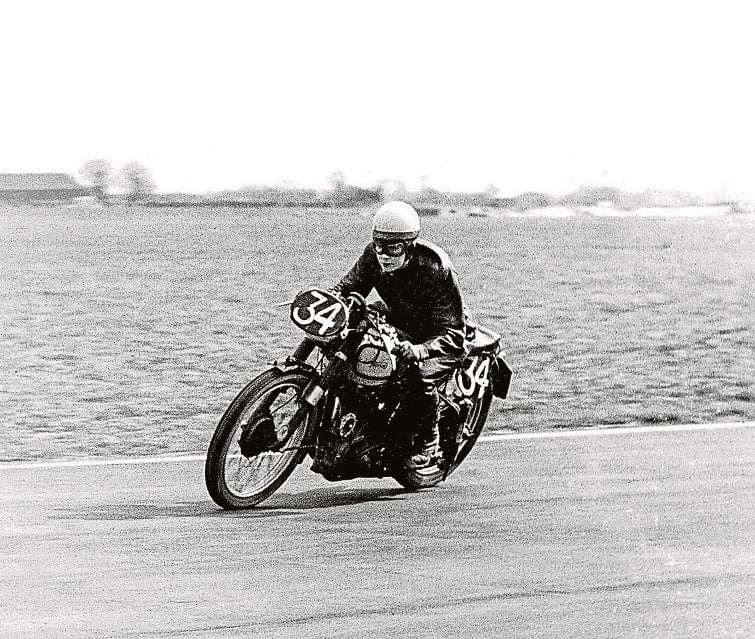
Motorcycle Trials
A boyfriend keen on motorcycle trials encouraged her to try the sport herself. Despite having received only a few basic lessons, Olga soon impressed with her natural aptitude. She was almost immediately offered a bike and support by the James Motorcycle Company and the following year (1948) she rode one of their little Villiers-engined tw0-strokes some 1000 miles from Birmingham to San Remo in Italy to take part in the International Six-Days Trial!
Crashing in the event left her with a broken wrist and ankle but, undaunted, she rode the bike for the whole of the 1000 miles back home with the broken limbs still in plaster!
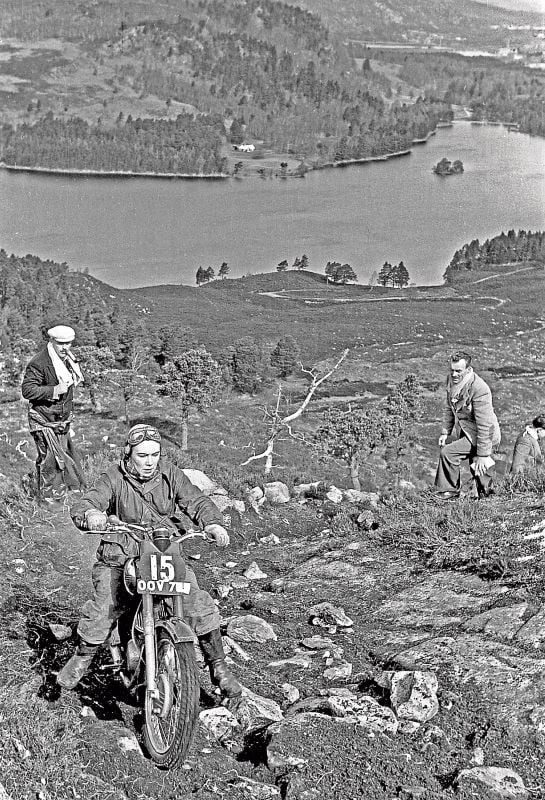
International Six Day Trials
In 1949 Olga Kevelos went on to win the first of her two ISDT gold medals, riding a 500cc Norton in the International Six-Days Trials in Wales. Her second ISDT ‘Gold’ was won in 1953. She was also to ride with varying degrees of success in hundreds of observed trials, including every Scottish Six-Days Trial from 1950 until she finally retired from the sport, two decades later in 1970. And she competed in every International Six-Day Trial from 1949 until 1966!
During that time, she won the backing of almost every major British motorcycle manufacturer involved in trials including Norton, James, Francis Barnett and DOT, and the Italian and Czech manufacturers Parilla and Jawa/CZ respectively.
And she wasn’t just adept at the balancing art. She had a need for speed as well and drove Norton and JAP-engined Cooper and Kieft 500cc Formula 3 racing cars, rode Manx and International Nortons at Silverstone and other circuits and an Ariel Arrow Sports 250cc twin in the 1962 Thruxton 500 Miles race.
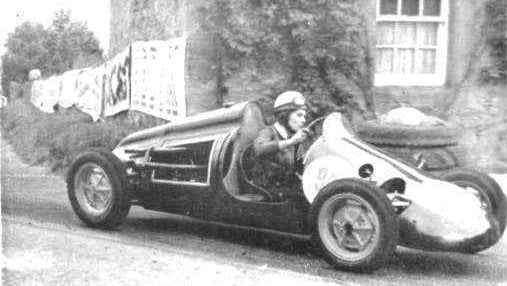
Olga at the wheel of a Kieft at Bo’ness Hillclimb
After her ISDT rides with Jawa and CZ in the late ‘sixties, Olga forged close links with the then communist Czechoslovakia. And some 40 years later she had retired from motorcycle competition, this led to her being invited to a Foreign Office reception held to celebrate the new and democratic Czech Republic’s accession to the European Union. The Prime Minister at that time was Tony Blair, and he apparently spent some time discussing with Olga her views on Genghis Khan, a subject on which she had once answered questions from the famous chair of the well–known TV programme, Mastermind!
“He [Blair] probably wanted a few tips on how to successfully invade other people’s countries,” she is said to have commented afterwards!“

